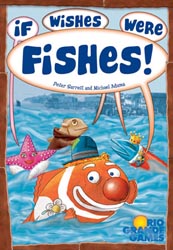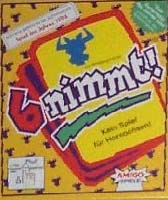 TransAmericaÂ
TransAmericaÂ
This week, I decided we should start with a quick game of TransAmerica to pay tribute to the designer, Franz-Benno Delonge, who passed away on Sunday. This is a great game to introduce to new gamers with simple rules and quick gameplay and I always enjoy it when I play it. Now Steve admitted that he has played dozens of games on Brettspielwelt so he was hot favourite and confirmed this when he was first to link up his cities in the first round. Mark K somehow found himself 6 spaces short so not a good start for him. The second round saw me connect up first with Steve drawing level with me. Things stayed pretty tight between me and Steve until the last round when I knew from my starting cards that I was going to struggle and sure enough I ended up 5 spaces short, allowing Steve to claim the win. It must be admitted though that he did play an efficient game and all his practice paid off.
Note to self: Check which games Steve’s playing on BSW before choosing the night’s games in future!
 If Wishes Were Fishes
If Wishes Were Fishes
We then decided to try the new game by Peter Sarrett and Michael Adams: If Wishes Were Fishes published by Rio Grande. The players are fishermen trying to catch fish and sell them for a profit at market. However, when you catch a fish, you have the option of throwing it back in return for it granting you a wish – hence the title.
Players start off with two boats each of which will hold a fish. On your turn you can choose between three options: First you can catch a fish and load it onto your boat. You choose one of the four available fish in the sea and pay for it depending on how far offshore it is – the shallowest water costs you nothing but each step further out costs you one of your limited supply of worms. Instead of loading a fish onto your boat, the second option is to toss it back and carry out the wish offered by the fish. There are numerous wishes that allow players to move the buyers around the markets, sell fish, collect money based on the worms they possess, acquire a new boat, etc. The third option is to sell a single fish from one of your boats at one of the seven markets. These pay $2 per fish plus a bonus if any of the buyers are at that market. Once a market has a given number of fish in it (initially 4 but rising to 7), it is declared full and the players with the most and second most fish sold there get a bonus. Any further fish sold to that market get sent to the garbage heap. Once four markets have been closed, the game ends. Alternatively, if ten fish appear in the garbage heap, that ends the game early and those with the most spoiled fish receive a penalty. Either way, bonuses are then added for those with the most worms left and whoever then has the most cash wins.
Our game stayed pretty tight but I always felt I was playing catch up. Despite running out of worms, which limited me to fishing in the shallows, I still managed to be near enough to the leader. However, the timing of the when the wishes with worm bonuses attached was pretty critical. Steve and Mark K especially benefited from bonuses in double figures from these very lucrative wishes. The end game condition was touch and go as to whether it would be due to garbage or a fourth market closure. The garbage route would have hit Mark K and Steve, who were leading, but it wouldn’t have changed the result and a fourth market close engineered by Mark G improved both his and my scores. However, Mark K’s worm bonus gave him a comfortable margin over Steve in second.
I think we felt this was a reasonably good game even though it didn’t set the world alight. The choices to be made were fairly obvious and there didn’t appear too much opportunity to set yourself up for a major score. However, the game played nicely and it would be good in a family environment.
 6 Nimmt
6 Nimmt
We finished off with a perennial favourite, 6 Nimmt, which is always good fun and does involve lots of angst in picking cards to avoid taking penalties. As usual, when people picked up their hands, everyone declared what bad cards they had. In the first round, Nige followed up on such a claim by taking a whopping 32 penalty points. Mark G ended the round with just one penalty point but made up for it in the remaining three with 25, 20 and 30 points respectively. Steve remained in contention with me quite well in the first two rounds but then got 19 points in each of rounds three and four. Mark K’s game came good at the end taking no penalties from the last hand but after three bad rounds previously. Yours truly proved what a fine judge he is of 6 Nimmt though, taking just 18 points over all four rounds for a fine win.
6 Nimmt is a classic card game which I am always happy to play. It is one of those really good examples of being able to use the odds to determine the best card to play, although it doesn’t always work, and judging when to take the pain for minimum loss. Great stuff.
Full results and ratings are posted on my Trickylight website.
